If Op. True Promise II dealt blow to Zionist entity, Leader’s Friday sermon crushed it
By Musa Iqbal
Last week’s Friday prayers and the sermon by the Leader of the Islamic Revolution, Ayatollah Seyyed Ali Khamenei in Tehran were truly historic. Over a million people attended the prayers, and millions more watched on television screens worldwide.
The rare occurrence of Iran’s Leader leading the Friday prayers and delivering the sermon marked a significant demonstration of power not only in the region but on the global scale.
And it came days after Iran’s power-packed ‘Operation True Promise II’, in which hundreds of ballistic missiles pounded key Israeli military facilities in the occupied territories.
The last time Ayatollah Khamenei led the Friday prayers in Tehran was shortly after the assassination of top anti-terror commander General Qassem Soleimani in January 2020.
His public appearance in the heart of Tehran amid Israeli threats to attack the country was significant and conveyed a powerful message to the enemy in the context of Operation Al Aqsa Flood and a new phase of struggle against the Zionist regime and its American backers.
One must begin by analyzing the announcement of the speech itself. Announced Tuesday, October 1st, the news of Ayatollah Khamenei leading Friday prayer later that week was followed shortly by hundreds of ballistic missiles fired by the Islamic Revolution Guard Corps (IRGC) in an operation dubbed “Operation True Promise II.”
Prior to the striking of sensitive targets, bypassing multiple Israeli air defense systems as well as US military personnel stationed across the region, Ayatollah Khamenei let the entire world know his exact time and location for Friday prayers.
The Israeli regime, whose modus operandi includes cowardly assassinations - with Ismail Haniyeh, Sayyed Hassan Nasrallah, and General Abbas Nilforoushan assassinated by the regime within months - was challenged openly by the Leader of the Islamic Revolution.
After the IRGC concluded its operation - hailed by the entire resistance front - it warned the Israeli regime that if it struck back at Iran for carrying out its legal and long-awaited retribution, the response would be much more crushing and severe.
The IRGC seemingly knew even prior to the missile launch what Israel’s military weak points were and how to bypass them - a test run conducted through Operation True Promise I in April.
✍️ Viewpoint -Hard lesson for Zionist regime: Threats against proud Iranian nation always backfire
— Press TV 🔻 (@PressTV) October 6, 2024
By @mehdizafar https://t.co/DEivX4cG0f pic.twitter.com/C0VeHkRCHN
Ayatollah Khamenei challenged the West-backed Tel Aviv regime at a time and place where everyone knew, where millions of televisions across the globe were live streaming the prayer and sermon. He didn’t only offer prayers and sermon, but also stayed longer to recite Holy Quran and hold talks with officials present in the prayer hall.
By not taking action, Israel forfeited and conceded that they had in fact been deterred. Iran’s offensive and defensive capabilities rendered the colonial aggressor into a humiliating retreat, unable to strike again - all while failing to make advances in its ground operation in Lebanon.
This is a tremendous achievement for the resistance front. Iran showed the world that the Israeli enemy is but a mere paper tiger, that when dealing with an opponent on a level playing field, it would freeze up and choke.
At the same time, Iranian Foreign Minister Abbas Araghchi fearlessly visited Lebanon and Syria on a humanitarian mission as it was being bombarded by the Zionist regime, while Iranian President Masoud Pezeshkian went to Qatar for the summit of the Asia Cooperation Dialogue - all right after the conclusion of True Promise II.
This shows confidence in the country’s political and military leadership paired with its diplomatic strength. Iran can deal with its enemies with heavy military force while surrounding itself with friends who want to pursue goals that promote economic prosperity and solutions for issues within the region.
The swift actions of the IRGC, paired with the diplomatic missions pursued immediately after, only further strengthened the content of Ayatollah Khamenei’s speech: unity with friends and stern action against enemies. The Leader eulogized and reflected on Hezbollah General Secretary Sayyed Hassan Nasrallah, speaking in Arabic for Arab speakers in Lebanon and Gaza.
When speaking about the martyred Hezbollah leader, Ayatollah Khamenei said “[Nasrallah’s] most important message in words and action during his lifetime to you, the devoted people of Lebanon, was to not despair or become distraught over the loss of prominent figures such as Imam Musa Sadr, Sayyid Abbas Mousavi, and others; to not doubt your struggle; to increase your efforts and your capabilities; to double your solidarity; to stand up to the aggressive, intrusive enemy; and to defeat them by strengthening your faith and putting your trust in God."
Resistance movements from Hezbollah to Ansarullah praised the speech. It was a rallying cry across the region, rejecting Zionism and its American collaborators.
With these words, Iran embedded itself as not only the leader and torchbearer of resistance in the region - but also a friend to all who stand against Zionism and American imperialism.
At a time when the Zionist entity was going on a seemingly unending rampage - beginning with the notorious pager bombing incident in Lebanon to the assassination of Sayyed Nasrallah with 80 tons of bombs, Iran dealt a blow with True Promise II that shook the entity to its core, stopping it in its tracks (by literally sending millions of settlers into bunkers).
✍️ Viewpoint - 'My source of pride': Leader’s heartfelt tribute to resistance icon Martyr Nasrallah
— Press TV 🔻 (@PressTV) October 7, 2024
By Wesam Bahranihttps://t.co/j24u8gwV0a pic.twitter.com/KtMECJHSRz
Ayatollah Khamenei also broadened the content of the speech to address the overall worldwide issue of American imperialism and the Zionist role in it.
“Their [The US] policy is to turn the [Zionist] regime into a gateway for exporting energy from the region to the Western world while facilitating the import of goods and technology from the West to the region,” he remarked.
“This [approach] ensures the survival of the usurping regime and increases the entire region's dependency on it. The [Zionist] regime's brutal, reckless behavior toward the [Resistance] fighters stems from its self-serving desire for such a situation.”
The speech was a call for solidarity with the resistance across the region and cemented the unified effort of Islamic resistance against foreign aggression. It was a call for unity - not sectarianism - in order to unify not only the Islamic world against aggressors who are committing atrocities but for all justice-seeking people.
“This reality helps us to realize that every blow to the Zionist regime by any individual or group is not only a service to the entire region but to all of humanity.”
Ayatollah Khamenei has previously expressed his support to confront the Zionist entity, even penning a letter to American students in support of their protest movement against the Israeli occupation.
Over a week has passed since the Iranian slap against the Zionist regime. In this time, Tel Aviv, Haifa, Eilat and other parts of occupied Palestine have come under incessant missile and drone attacks from Iraq, Yemen, and Lebanon.
While war hawks in the Knesset and US Congress were expecting an all-out operation against Iran and the resistance, they had to reconcile with the fact that they were coming up short.
The Israeli enemy was so deterred that they did not even take the anniversary of October 7th - the beginning of Operation Al Aqsa Flood - to go on the offensive and “reclaim” a date that is otherwise associated with their military and intelligence debacle.
As many as 3,000 Sunni scholars have written to Leader of the Islamic Revolution Ayatollah Khamenei, expressing their gratitude and support for the implementation of Iran’s recent operation against the occupied Palestinian territories.
— Press TV 🔻 (@PressTV) October 8, 2024
Read more: https://t.co/PzYd691e7H pic.twitter.com/NYgvAsTyAs
This would have been ripe and ample time to make a symbolic media offensive - something that the Zionist military does often - however, it remained in a state of inaction.
US President Joe Biden, who suggested Israel would likely attack Iran’s oil supplies shortly after Operation True Promise II, walked back the idea a day later, saying “If I were in their [Israel] shoes, I’d be thinking about other alternatives than striking oil fields.”
The comments came after Biden’s initial remarks about striking oil fields caused global oil prices to significantly increase.
“The main problem facing the region is foreign interference. The governments of the region are capable of establishing peace and security. Achieving this great, liberating goal requires the efforts and struggles of nations and governments,” Iran’s Leader said.
By addressing exactly who are the allies in the struggle against foreign aggression and who are the enemies and collaborators, Ayatollah Khamenei positioned Iran as a powerful regional power, one capable of not only using hard power to deter the enemy, but soft power levers like diplomacy and trade with likeminded leaders to reject Zionist intercession on the behalf of US Imperialism.
It is clear that as the Israeli occupation tries to throw the region into an all-out war by inviting American intervention, unity to resist foreign aggression will be important.
To this end, Ayatollah Khamenei’s speech serves as a rallying call for all to understand the nature of imperialism, and to unite against it. It represented the soft power that followed the hard power demonstrated through Operation True Promise II.
Musa Iqbal is a Boston-based researcher and writer with a focus on US domestic and foreign policy.
(The views expressed in this article do not necessarily reflect those of Press TV.)
‘Speaking truth is her crime’: Netizens rip into European allies of Israel for targeting Albanese
Russia reaffirms support for Iran’s sovereignty amid rising US threats
VIDEO | 3,000 bodies of Palestinians ‘evaporated’ as Israel used banned weapons in Gaza
Iran says political pressure cannot undermine its ‘inalienable’ enrichment right
Former Trump adviser Bannon plotted with Epstein to 'take down' Pope Francis
China warns US against ‘plotting’ on Taiwan, says it risks confrontation
VIDEO | Zionist takeover of UK police
VIDEO | Trump-Netanyahu meeting


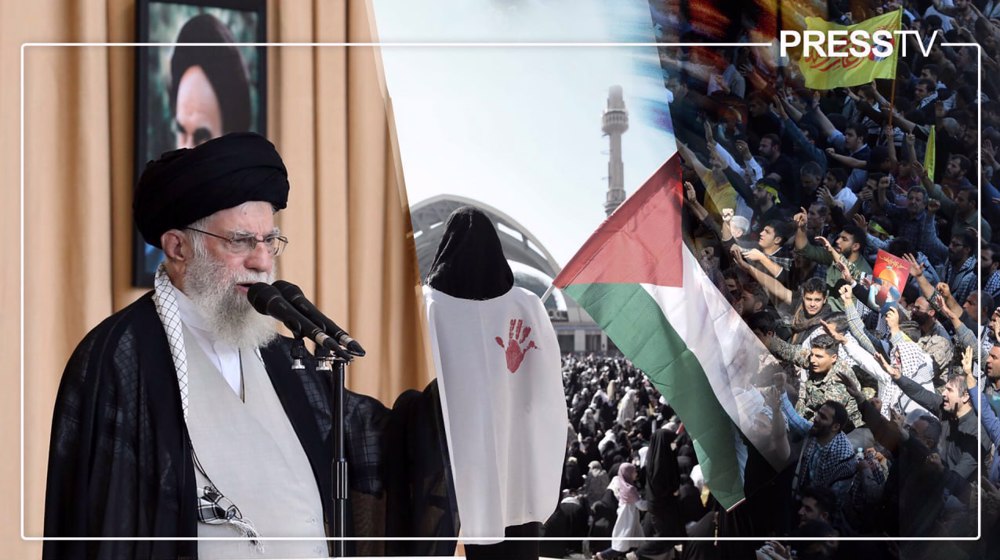
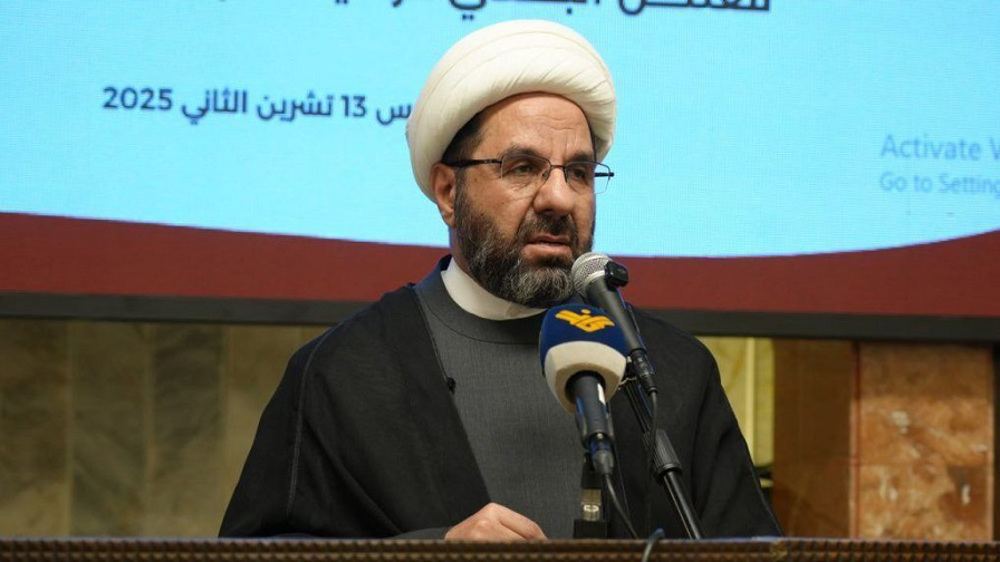
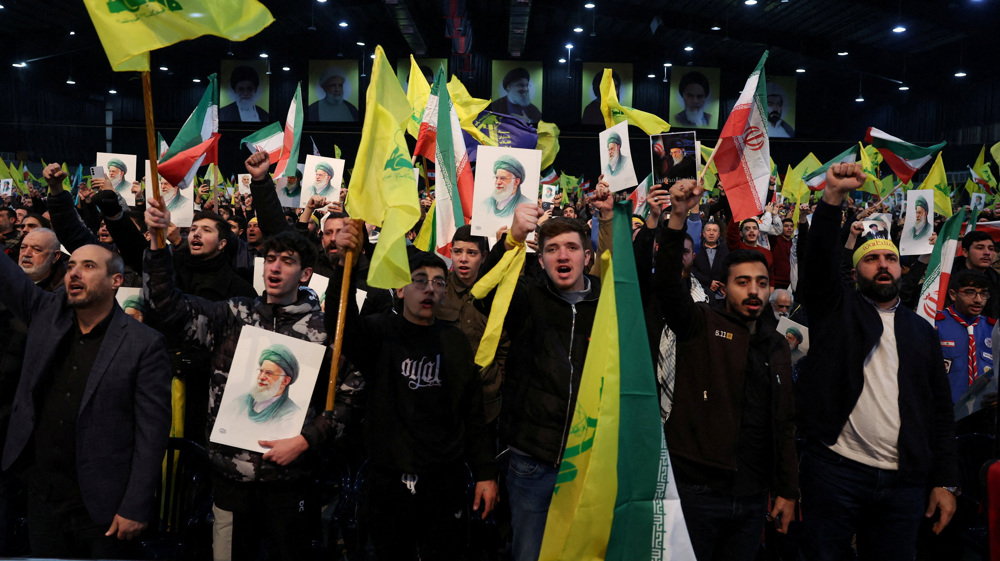
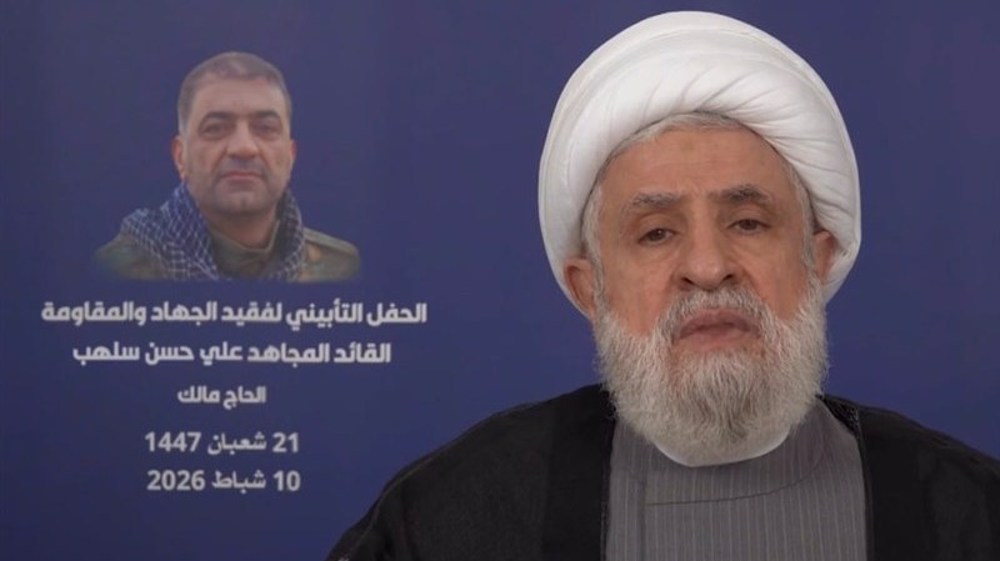



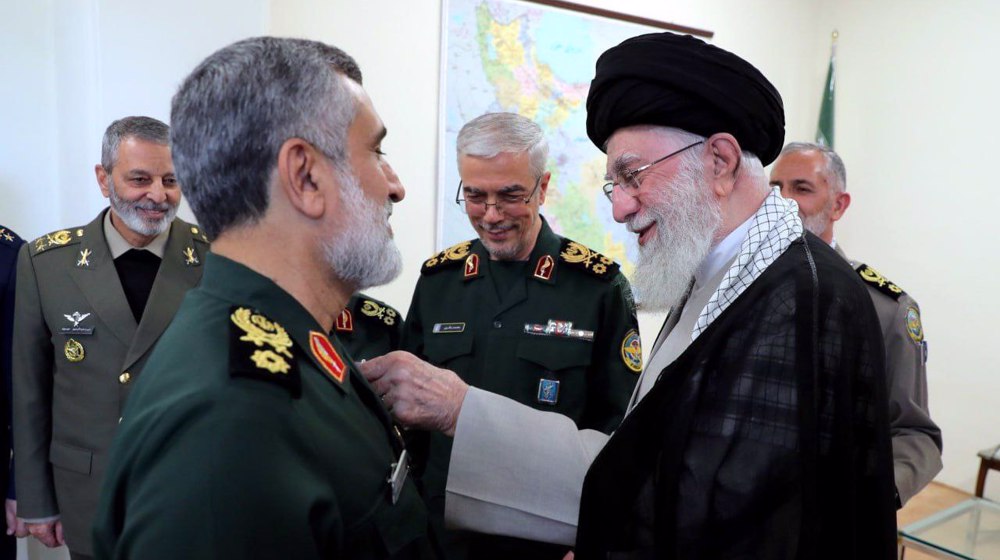
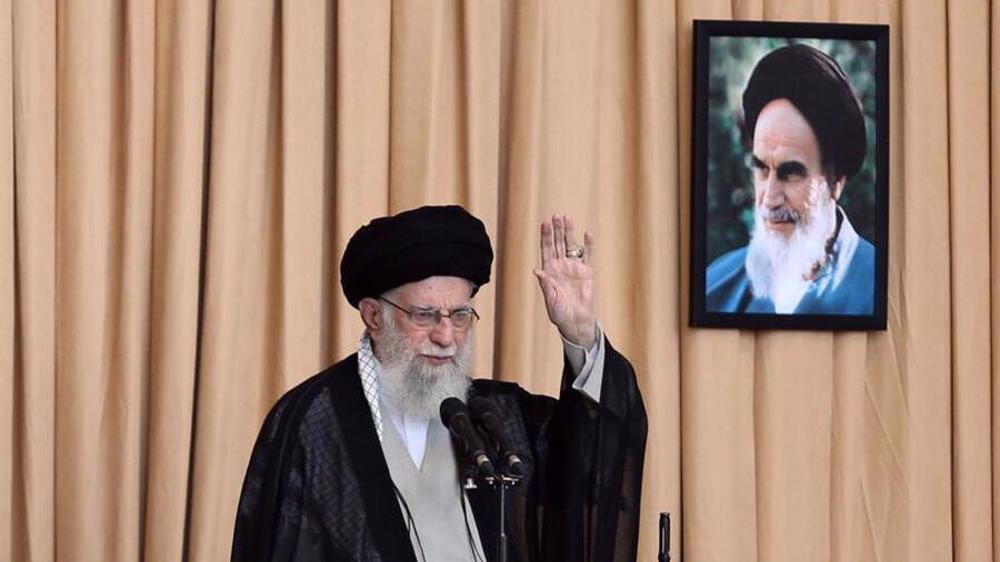
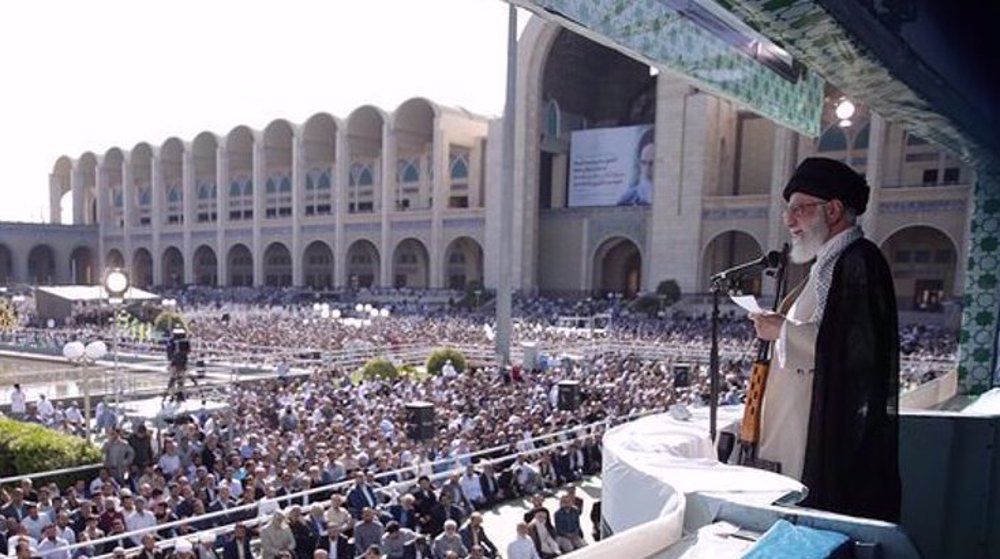
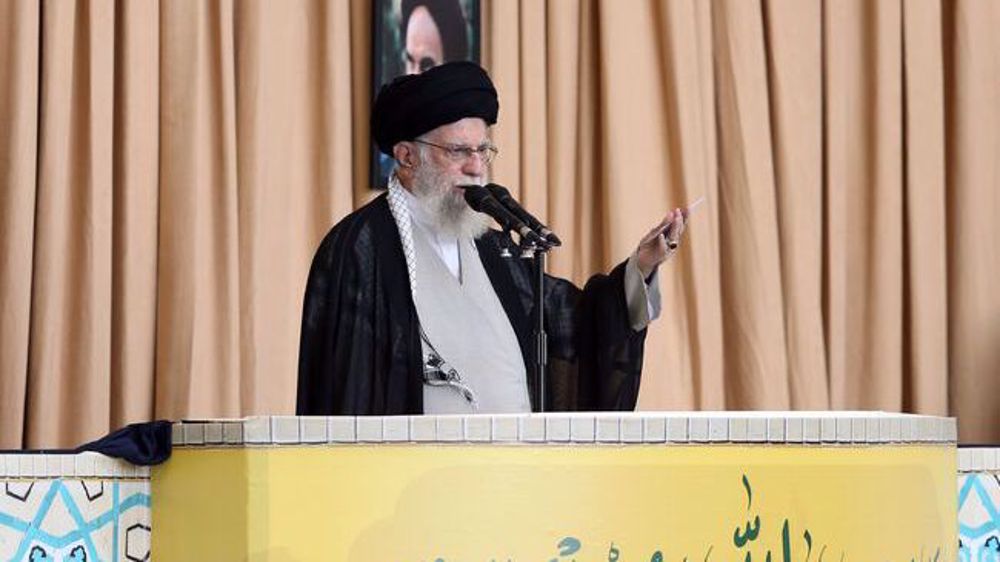
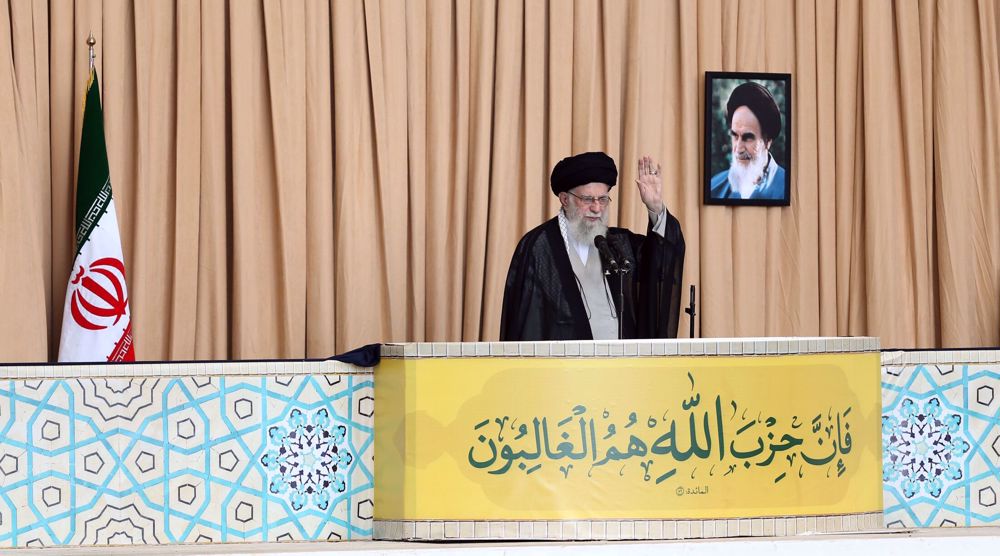

 This makes it easy to access the Press TV website
This makes it easy to access the Press TV website